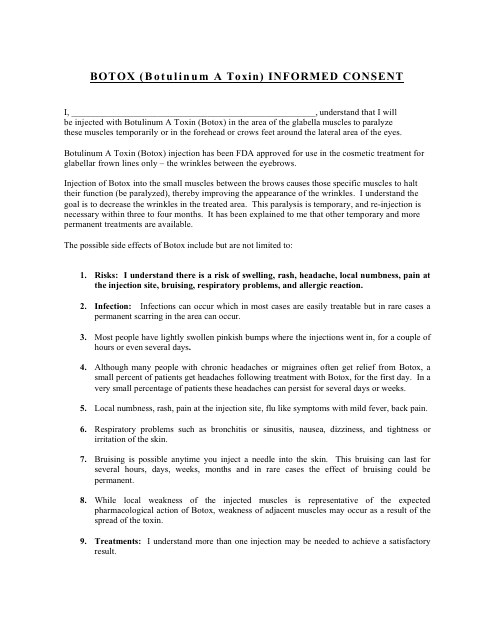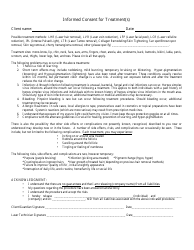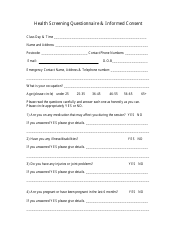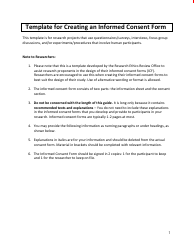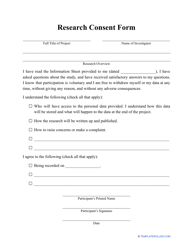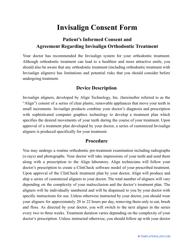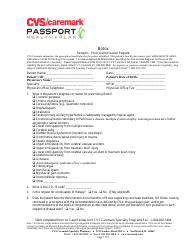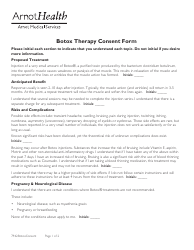Botox Informed Consent Form
The Botox Informed Consent Form is a document that explains the risks, benefits, and potential side effects of receiving Botox injections. It is used to ensure that the individual receiving the treatment fully understands the procedure and gives their voluntary informed consent before undergoing the treatment.
The Botox informed consent form is typically filed by the patient receiving the Botox treatment.
FAQ
Q: What is Botox?
A: Botox is a drug made from a toxin produced by the bacterium Clostridium botulinum.
Q: What is Botox used for?
A: Botox is primarily used to temporarily improve the appearance of facial wrinkles and fine lines.
Q: How does Botox work?
A: Botox works by paralyzing or weakening specific muscles or blocking certain nerves.
Q: Is Botox safe?
A: When used properly and by trained professionals, Botox is generally considered safe.
Q: What are the potential side effects of Botox?
A: Common side effects of Botox include bruising, swelling, and temporary muscle weakness.
Q: How long does the effect of Botox last?
A: The effects of Botox typically last for about three to four months.
Q: Who should not get Botox?
A: People who are pregnant, breastfeeding, or have certain neuromuscular conditions should not get Botox.
Q: How much does Botox cost?
A: The cost of Botox varies depending on factors such as the number of treatment areas and the provider's location.
Q: Is Botox a permanent solution for wrinkles?
A: No, Botox provides temporary results and requires regular treatments to maintain its effects.
Q: Can Botox be used for medical purposes?
A: Yes, Botox is also used to treat certain medical conditions such as migraines and excessive sweating.
